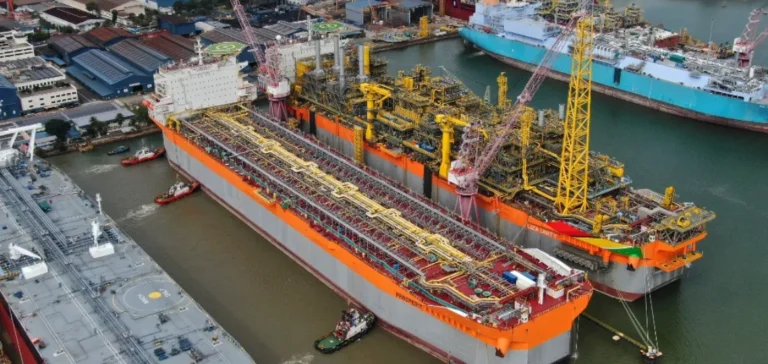SBM Offshore has announced the signing of an operations and maintenance contract with TotalEnergies EP Suriname B.V., a subsidiary of the French group TotalEnergies, covering the Floating Production Storage and Offloading (FPSO) unit GranMorgu. This project is a central component of the oil development carried out in Block 58, located offshore Suriname. According to agreed terms, SBM Offshore will handle the operational readiness phase before the start of oil production as well as operations management and maintenance services for a minimum period of two years after the unit becomes operational, with options for extension. This award marks SBM Offshore’s debut as an FPSO operator in Suriname.
Project’s preparatory and operational phase
The contract initially provides a crucial preparation period aimed at ensuring optimal commissioning of facilities before the first oil extraction. The FPSO GranMorgu unit incorporates SBM Offshore’s Fast4Ward® MPF (Multi Purpose Floater) technology, specifically designed for rapid deployment in deep-water oil fields. This unit, the eighth in its series, demonstrates SBM Offshore’s industrial ambition in the global offshore oil market. This strategic choice strengthens the long-term partnership between SBM Offshore and TotalEnergies in managing complex petroleum infrastructures.
FPSO GranMorgu will ensure processing and storage of crude extracted from Block 58, an area drawing considerable industrial attention due to its hydrocarbon potential. Exploitation of these offshore deposits relies on sophisticated installations capable of efficiently operating in challenging marine environments. SBM Offshore leverages decades of accumulated experience in operating and maintaining similar platforms across various international markets. The company aims to utilise its expertise in complex asset management to support operational startup and daily platform management for TotalEnergies.
A strategic milestone for SBM Offshore
With this contract signed with TotalEnergies, SBM Offshore officially becomes the first operator of an FPSO unit in Suriname, marking an important milestone in the geographical expansion of its operational activities. This strategic operation also strengthens commercial relations between SBM Offshore and TotalEnergies, notably in managing major international oil projects. For TotalEnergies, this partnership reflects continued strategic expansion into promising Latin American regions.
The operational and technical expertise SBM Offshore will contribute to the GranMorgu project will be crucial to ensuring installation safety and productive efficiency. This new contract represents a key development element for the company alongside major energy industry players. For SBM Offshore, securing this contract sustainably positions the company within the region’s offshore landscape and could influence its future strategic direction in this area with high oil potential.






















